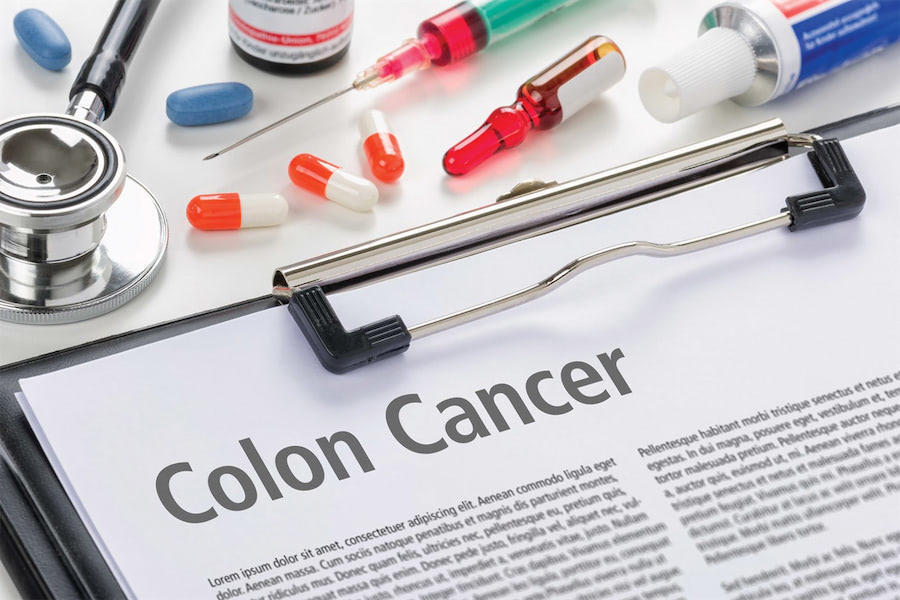
As one of the most commonly diagnosed forms of cancer, it is vitally important to have an understanding of what colon cancer is and its associated treatment options. This blog post will provide you with a comprehensive overview of the stages and treatments available for those facing this challenging diagnosis. We'll discuss exactly what sets each stage apart from the others and how every type is treated so that you can understand this complex disease better and make informed decisions regarding your care.
Overview of Colon Cancer - What is it and the stages of diagnosis
Colon cancer is a type of cancer that begins in the large intestine, specifically in the colon. This cancer typically starts as a small, benign growth or polyp but can eventually become cancerous if left undetected or untreated. The sooner colon cancer is detected, the better the chances of successful treatment. To diagnose colon cancer, doctors use a combination of several imaging and diagnostic tests such as a colonoscopy, CT scan, or blood tests. Once diagnosed, treatment options depend on the stage of the cancer. Early-stage colon cancer can usually be treated with surgery, while more advanced stages may require a combination of surgery, chemotherapy, and radiation therapy. Overall, awareness and early detection are crucial when it comes to managing colon cancer.
Causes and Risk Factors - What increases your chance of developing colon cancer
Did you know that there are certain factors that can increase your chances of developing colon cancer? While it may not be completely preventable, being aware of these risk factors can help you take steps toward early detection and proper treatment. Age, family history, a high-fat diet, obesity, smoking, and heavy alcohol use are all common factors that have been linked to an increased risk of developing colon cancer. It's important to note that not everyone who has these risk factors will develop colon cancer, and not everyone who develops colon cancer has these risk factors. Understanding the various stages of colon cancer and receiving proper treatment can greatly improve your chances of recovery. Stay informed and proactive when it comes to your health.
Symptoms to Look for - Common signs and symptoms associated with colon cancer
Colon cancer is a serious disease that affects many people around the world. It is important to be aware of the common signs and symptoms associated with it. Some of these may include unexplained weight loss, changes in bowel habits, abdominal pain or discomfort, rectal bleeding, and fatigue. If you experience any of these symptoms, it is important to see a doctor as soon as possible to be properly evaluated. Early detection is key to successful treatment and can greatly improve outcomes. Depending on the stage of colon cancer, treatment may include surgery, chemotherapy, radiation therapy, or a combination of these options. It is important to work closely with your doctor to determine the best treatment plan for your individual needs.
Diagnostic Tests - How your doctor determines if a person has colon cancer
Colon cancer is a type of cancer that affects the large intestine or the rectum. It can be difficult to detect in its early stages since it often presents with no symptoms. That's why diagnostic tests are so important for individuals at risk or those experiencing symptoms such as changes in bowel habits, abdominal pain, and rectal bleeding. Your doctor will use a variety of tests to determine whether you have colon cancer and what stage it may be in. These tests may include a colonoscopy, blood tests, imaging tests such as CT scans or MRI, or a biopsy to examine tissue from the colon itself. Once a diagnosis is made, treatment options will depend on the stage of cancer and may include surgery, chemotherapy, radiation, or a combination of these approaches. With early detection and proper treatment, many people are able to overcome colon cancer and continue leading healthy, fulfilling lives.
Treatment Options - Different types of treatments available to treat colon cancer
Colon cancer can be a serious diagnosis and requires immediate attention. Depending on the stage of colon cancer, treatment options may vary. Early stages of colon cancer may only require surgery to remove the affected area. However, if the cancer has progressed to later stages, additional treatment options such as chemotherapy and radiation therapy may be required. In some cases, targeted therapy and immunotherapy may also be used as a part of treatment. It is important to note that every individual's case is unique and treatment options will vary based on their specific condition. It is crucial to work with healthcare professionals to determine the best plan of action for each individual case.
Prevention Strategies – Ways to reduce the risk of recurrence of colon cancer
Colon cancer is a serious and potentially deadly disease that affects millions of people every year. While treatment options have improved significantly, prevention strategies are still critical for reducing the risk of recurrence. There are several ways to lower your risk of colon cancer, including maintaining a healthy weight, increasing physical activity, avoiding excessive alcohol consumption, and adopting a high-fiber, low-fat diet. Other prevention strategies may include regular screenings, quitting smoking, and managing any underlying conditions that can contribute to the development of colon cancer. By following these guidelines, you can take steps to reduce your risk and stay on top of your health, no matter what stage of colon cancer you may be facing.
